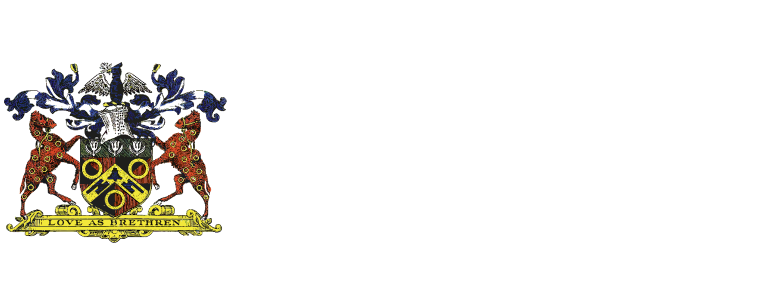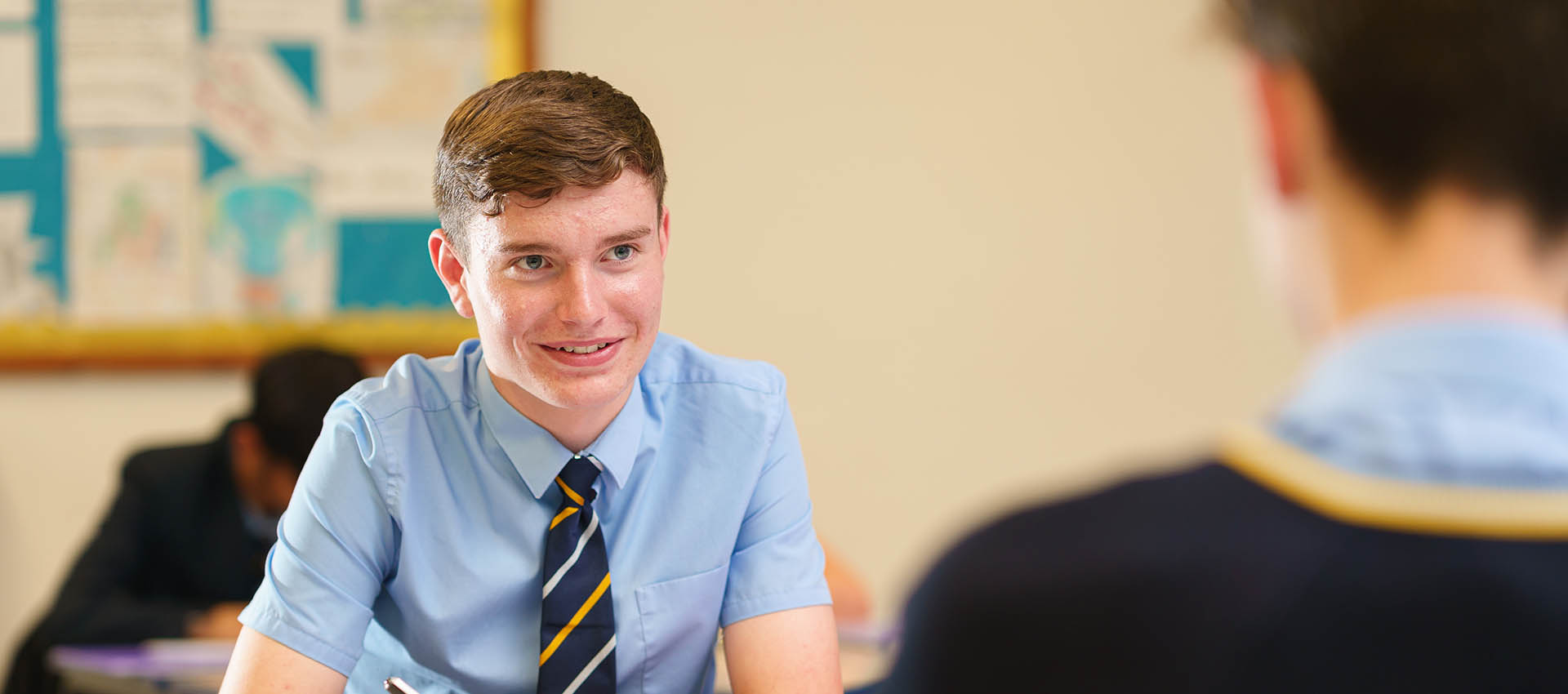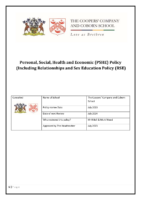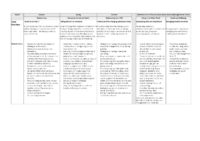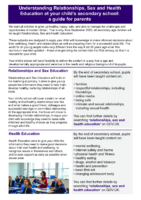PSHE
PSHE stands for Personal, Social, Health and Economic education and at The Coopers’ Company & Coborn School it is a key subject.
The overarching aim for PSHE education is to provide pupils with:
- accurate and relevant knowledge opportunities
- to turn that knowledge into personal understanding
- opportunities to safely explore, clarify and if necessary, challenge, their own and others’ values, attitudes, beliefs, rights and responsibilities
- the skills and strategies they need in order to live healthy, safe, fulfilling, responsible and balanced lives.
Useful Links
The Curriculum
The school worked through a detailed process to develop its PSHE curriculum. The PSHE Association organises learning opportunities for students under three core themes. These are: ‘Health and Wellbeing’; ‘Relationships’; and ‘Living in the Wider World’. The school chose to use the expertise of the subject association in developing its curriculum rationale. The school has therefore separated these three core themes into six areas, to create specialist teaching teams of teachers trained to deliver specific content across key stages 3, 4 and 5. To create these teams, we consulted our staff body and deployed staff based on expertise and experience; we hope that taking this into consideration will help further staff professionally, create a positive culture within the subject and ensure the best outcomes for students. Our six specialist teaching areas are:
- Health and Wellbeing: Healthy lifestyles/decisions, managing risk and personal safety
- Health and Wellbeing: Mental health and emotional wellbeing
- Health and Wellbeing: Drugs, alcohol and tobacco
- Relationships: Positive relationships, relationship values, forming and maintaining respectful relationships, bullying, abuse and discrimination and social influences
- Relationships: RSE – consent in relationships, contraception and parenthood, elements of positive relationships, intimacy, elements of bullying, abuse and discrimination such as FGM, puberty, sexual health and fertility
- Living in the Wider World: Skills for employment, the careers journey, financial decision-making, the world of work, careers planning, working, with diverse people, money management
The six themes allow for modular content to be delivered in half termly blocks, creating a balanced year wide approach. Using data from a school subject audit, feedback from our School Congress, and consultations with students and staff historically, we know that the statutory content required more focus in our curriculum provision. As a school we are fortunate to be able to draw on many strengths that allow for quality provision under the core theme of ‘Living in the Wider World’. We have an experienced Head of Careers who provides students with 1:1 interviews and advice, as well as a planned programme of activities from which students in Years 7-13 can benefit. We have a developed Alumni Network who deliver talks and focused sessions – especially at post-16 level. In addition, our student demographic benefit from positive parental input and influence regarding economic wellbeing, careers and the world of work. It is with this in mind that we decided to reduce the content under the non-statutory core theme of ‘Living in the Wider World’ to one half termly block (rather than use a third of the available teaching time) and provide more time for delivery of the statutory themes. An overview of the content delivered within each strand is found below. A more detailed curriculum content plan can be found in Appendix 1 of our PSHE policy.
Programme of Study: Health and Well Being
- Year 7: Recognising the importance managing and maintaining healthy personal routines.
- Year 8: Understanding the importance of being responsible for healthy personal and hygiene routines and how to seek advice or assistance.
- Year 9: Exploring British Values (democracy; the rule of law; individual liberty; and mutual respect for and tolerance of those with different faiths and beliefs, and for those without faith) and the importance of community cohesion in challenging extremism.
- Year 10: Increasing confidence in responding to emergency situations and performing first aid.
- Year 12: Preparing for a more independent approach to managing their lives in the wider world following school.
Programme of Study: Mental Health
- Year 7: Understanding that happiness is linked to the feeling of being connected to others and enabling the use of emotion vocabulary to improve self-expression.
- Year 8: Exploring the characteristics of mental and emotional health and the range of strategies for managing these and challenging stigma.
- Year 9: Developing understanding of what mental health means – including learning facts about mental ill health. Understanding how to recognise concerns with health and wellbeing and where and how to seek help.
- Year 10: Investigating the relationship between internet use and mental and emotional health and wellbeing.
- Year 11: Recognising what constitutes a healthy balance in day-to-day life, as well as feelings and emotions and how this can be maintained.
- Year 12: Understanding the skills and strategies needed to confidently manage transitional life phases.Recognising signs of change in mental health and understanding a range of strategies for accessing help and support.
- Year 13: Understanding what stress is, the factors which contribute to stress and the effects of stress.
Programme of Study: Drugs, Alcohol and Tobacco
- Year 7: Exploring and reflecting on changing peer groups and peer pressures that come with a new school. Discuss the factors involved in the new environment of Year 7.
- Year 8: Introducing the facts about legal and illegal drugs and their associated risks.
- Year 9: Understanding the law relating to legal and illegal substances; the effects of these substances and their associated risks.
- Year 10: Understanding consequences of substance misuse for individuals, their families, and the wider consequences in communities.
- Year 11: Reflecting on the changes that have occurred during the last five years at school and exploring strategies to manage risk in a range of situations – including on the road.
- Year 12: Understanding the wider consequences of substance use and misuse including the effect on travel, personal safety and decision making.
- Year 13: Understanding the wider consequences of substance use and misuse especially managing risk in new situations.
Programme of Study: Relationships
- Year 7: Exploring the transition to secondary school and introducing students to our school ethos and values – including our motto: Love as Brethren.
- Year 8: Understanding what family diversity is and the characteristics and importance of healthy family life.
- Year 9: Understanding the need to promote inclusion and how we can challenge discrimination
- Year 10: Exploring the connection between personal values and the values of and in relationships.
- Year 12: Exploring personal values in a range of different relationships.
Programme of Study: Relationships and Sex Education (RSE)
- Year 7: Understanding the main changes which take place in males and females during puberty and the impact on emotional and physical health – including menstrual wellbeing.
- Year 8: Recognising and developing healthy relationships that are consenting, respectful, and positive. Understanding the impact, risk, and law regarding harmful online content – including sharing nude and semi-nude images.
- Year 9: Developing an understanding of intimate relationships and introducing sex education including revisiting consent.
- Year 10: Developing understanding of intimate relationships and sex education including facts about STIs, contraception and revisiting consent.
- Year 11: Developing an understanding of a range of situations including managing personal risk and harm.Identifying positive relationships and behaviours.
- Year 12: Developing understanding of a range of intimate relationships including sex. Recognising responsibility for sexual health including: accessing health care, accessing advice, diagnosis and treatment, reducing risk
- Year 13: Explore consent in a range of different situations with a nuanced teaching relevant to students leaving for university, the world of work, travelling and beyond.
Programme of Study: Living in the Wider World
- Year 7: Explore the start of their careers journey, considering the skills they will need as well as what their aspirations are. Understand the different money habits and the importance of budgeting.
- Year 8: Understand the important issue of diversity and inclusion in the workplace and the importance of their own digital communication style. Explore different financial habits and the importance of bank accounts.
- Year 9: Developing an understanding of key skills for employments; listening, speaking, resilience, problem solving and leadership. Understanding what fraud is, as well as key issues around data protection and online safety.
- Year 10: Develop and understand the skills required before work experience begins. To understand the importance of debit/credit/pay/payslips
- Year 11: Understand the importance of interview skills and how to create a CV. Further develop employment skills and develop knowledge of insurance and risk.
- Year 12: Develop and understand the skills required before work shadowing begins. To understand the importance of pay taxation and identity theft
- Year 13: Understanding how to manage finances for life beyond school/university
Note for parent(s) and carer(s):
It is important that we point out, as outlined within the statutory guidance, you have the right to request your child be withdrawn from all or part of sex education (only) lessons that are delivered as part of RSE. Please note that you do not have a right to withdraw your child from:
- Relationships Education
- Any sex education delivered as part of the science curriculum
- Health Education
If your son/daughter is in Year 10 or Year 11 please note that they will have the right to opt into sex education three terms before they turn 16 and the school will make arrangements for this to happen. In practice, this means that when your child turns 15 they have the right to be taught sex education if they want to – this overrides any prior parental consent. Although you have the legal right to request to withdraw your child from any or all of sex education as part of Relationships Education, it is our aim to encourage parents to see the value of RSE learning and its contribution to keeping children safe, developing their emotional, social and physical wellbeing and for promoting equality and social justice. Should you decide that you do not wish for your child to take part in any of these lessons, we would ask that you first speak to the Headteacher to discuss your concerns. The Headteacher will discuss the request with you to fully understand and address any concerns/objections to the content of the curriculum. If following this you do decide to withdraw your child, you should inform the Headteacher in writing and the school will keep a record of this. Except in exceptional circumstances, we will respect your request to withdraw your child up to and until three terms before they turn 16. After that point, if your son/daughter wishes to receive sex education rather than be withdrawn, the school will make arrangements to provide them with sex education during one of those terms. We will remind you annually that the request to withdraw is still in place and invite you to confirm whether you still want it.

